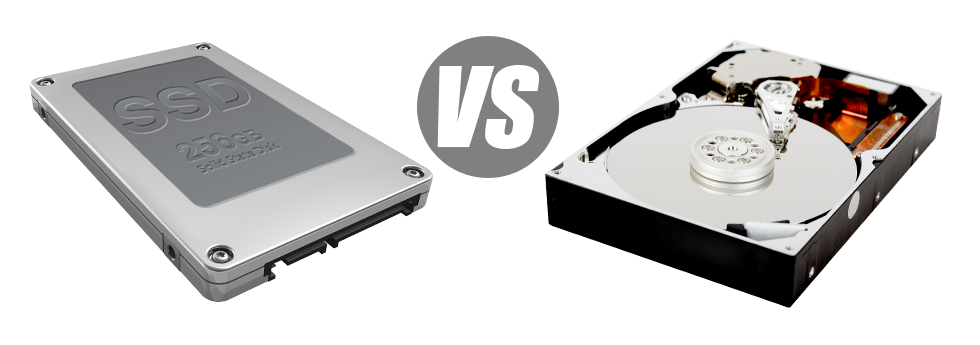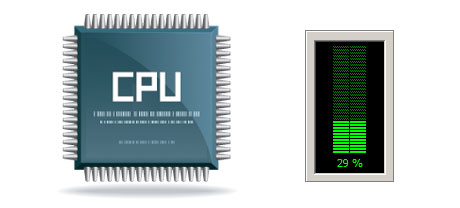Nowadays, pretty much all completely new personal computers have SSD drives instead of HDD drives. You can find superlatives to them everywhere in the specialised press – that they are quicker and conduct far better and they are really the future of home computer and laptop manufacturing.
Then again, how do SSDs stand up in the website hosting environment? Can they be trustworthy enough to substitute the tested HDDs? At Philosopher hosting, we are going to assist you to much better understand the dissimilarities between an SSD as well as an HDD and judge the one that best suits you needs.
1. Access Time
Because of a revolutionary new method to disk drive performance, SSD drives enable for considerably faster data file access rates. Having an SSD, file access times are far lower (just 0.1 millisecond).
HDD drives even now make use of the very same basic data access technology which was originally created in the 1950s. Despite the fact that it was vastly improved since that time, it’s sluggish compared with what SSDs are offering. HDD drives’ data file access speed varies between 5 and 8 milliseconds.
2. Random I/O Performance
The random I/O performance is crucial for the general performance of a data storage device. We’ve carried out detailed trials and have identified an SSD can manage at the least 6000 IO’s per second.
With an HDD drive, the I/O performance gradually increases the more you apply the disk drive. Nevertheless, once it actually reaches a particular limit, it can’t get speedier. And because of the now–old concept, that I/O cap is noticeably lower than what you might receive having an SSD.
HDD are only able to go as far as 400 IO’s per second.
3. Reliability
SSD drives are built to have as fewer moving parts as is feasible. They use a similar concept to the one used in flash drives and are generally significantly more trustworthy when compared to regular HDD drives.
SSDs come with an typical failing rate of 0.5%.
HDD drives utilize rotating disks for holding and browsing data – a technology since the 1950s. And with disks magnetically hanging in the air, rotating at 7200 rpm, the probability of one thing going wrong are considerably increased.
The normal rate of failure of HDD drives can vary among 2% and 5%.
4. Energy Conservation
SSD drives are far smaller than HDD drives and they lack just about any moving parts whatsoever. As a result they don’t produce as much heat and require a lot less electricity to operate and much less energy for cooling purposes.
SSDs use up between 2 and 5 watts.
HDD drives are known for getting noisy; they’re at risk of overheating and in case there are several disk drives inside a hosting server, you have to have an additional cooling device exclusively for them.
All together, HDDs consume between 6 and 15 watts.
5. CPU Power
The quicker the data file access rate is, the faster the file requests will likely be handled. As a result the CPU won’t have to arrange assets expecting the SSD to respond back.
The regular I/O wait for SSD drives is simply 1%.
HDD drives allow for reduced accessibility rates when compared with SSDs do, which will result for the CPU having to wait around, although reserving assets for the HDD to uncover and give back the required data.
The normal I/O wait for HDD drives is approximately 7%.
6.Input/Output Request Times
In the real world, SSDs perform as wonderfully as they performed for the duration of our tests. We ran an entire system backup on one of our own production machines. Throughout the backup process, the standard service time for any I/O calls was under 20 ms.
With the exact same hosting server, however this time furnished with HDDs, the end results were very different. The regular service time for any I/O call fluctuated between 400 and 500 ms.
7. Backup Rates
You can easily notice the real–world benefits of using SSD drives day after day. By way of example, with a web server built with SSD drives, a full backup can take merely 6 hours.
In contrast, on a web server with HDD drives, a comparable data backup usually requires 3 to 4 times as long to complete. A full back up of any HDD–powered web server normally takes 20 to 24 hours.
With Philosopher hosting, you may get SSD–operated hosting services at cost–effective price points. Our hosting can include SSD drives automatically. Go in for an web hosting account with Philosopher hosting and watch the way your web sites will become better immediately.
Hepsia
- Live Demo
Service guarantees
- Philosopher hosting’s Virtual Private Servers provide no setup fees and operate in a reliable network offering 99.9% of uptime. Full root access to the server warranted.
Compare our prices
- Quickly compare the resources and characteristics offered by our Virtual Private Servers. See exactly which VPS Web Hosting configuration offers you everything that you’ll need to manage your multi–media web presence easily.
- Compare our hosting plans
Contact Us
- Get in touch with us 24x7 by email or by using Philosopher hosting’s really–fast ticketing system. Our technicians are ready to answer all of your queries within just 1 hour.














